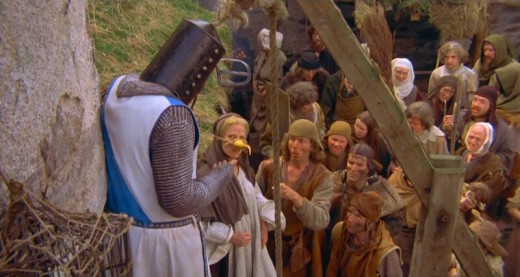
Today we are going to deal with how interpreters can and perhaps should think about politics – the politics of our own field and political action in practice.
Let’s start with one prompt and two interrelated problems. First, the prompt. The unqualified interpreter as Mandela’s ceremony has stimulated public attention on interpreters. The details of the incident are in many ways secondary. The real impact of the incident was to create a flash-bulb which illuminated the amazing, professional work that the majority of interpreters do everyday. But it also illuminated some central problems in our field.
Now, the interrelated problems. The first problem is that interpreters seem generally unprepared to respond to public attention with urgency and coordination. The second problem is that the interpreting field itself of marred by hostile politics. Neither of these problems are judgements of individual interpreters, but they are symptoms of the marginality of the field and the lack of strong leadership and collaborative discipline that marginalization engenders.
For instance, I posted a review of RID’s response to the events in Jo’burg as a way of applying discourse analysis (a common technique in our field) to political texts produced by our own organization. The RID statement is an important text which I understand as an indication of both of the problems I outlined above. First, it indicates our struggle to respond effectively to an event that became politicized in the media. (By “politicized”, I mean that the event was turned into an object of political discourse.) Second, RID’s response was not, for me, an indication of the organization’s inherent moral worth or (in)competence, as many on blogs and Facebook took great pleasure in denouncing. Rather, RID’s response itself is an indication of the destructive horizontal violence that permeates the field of interpreting. The ability of RID to respond effectively was dramatically hampered by internal debates within the membership over who gets to speak for interpreters, what kind of ASL gets represented on video, who within the organization can make a statement on behalf of the organization, and on and on. These problems cannot be ignored as being specific to a momentary crisis. Rather, they are the product of years of contests over which various individuals – hearing and Deaf – have argued over the idea of an ideal “Deaf community” to justify particular professional opinions, or to create and defend insular realms of relative authority over other interpreters. This doesn’t automatically disqualify or undermine claims of authenticity. Nor does it mean that the Deaf community is only imaginary and not actually real. Of course the Deaf community exists; it’s just that every real community also has an “imaginary” aspect of it which holds it together.
What worries me is that it seems like when we try to challenge oppression, the result is that we end up re-internalizing oppression within our professional community. (See crab mentality.)
To emphasize: none of the problems are specific to interpreters or the Deaf community. These problems have analogs in every marginal profession, every minority social group, every shade of political viewpoint. To be sure, there are specific aspects of the problem within the interpreting community which are qualitatively different. But we are mistaken when we think that these problems are the special ownership of specific people or even specific people groups.
What to do? I have some starting points or premises that I’m trying to work from.
1. Be cautious about using vague terms to screen each other. When I started in interpreting it was ATTITUDE. If you had ATTITUDE or make a public confession of the importance of ATTITUDE (often in ASL classes from one hearing student to another) then you gained authenticity. In some parts of the field, the current term is DEAF-HEART. It’s not that these terms are useless. Often the power of such vague terms is that they provide a way for otherwise powerless groups to screen membership. But this can also become a way to justify horizontal aggression. But Deaf and CODA interpreters deserve to know that these terms are frequently used by hearing interpreters to belittle each other.
2. Think beyond the level of individuals. Individual subject positions are the product of social and political contradictions, not the immediate cause. We cannot continue to blame underpaid and underrepresented interpreters for the failures of the profession, nor can we pretend that if we only had better leaders that we can resolve the fundamental problems we all care about. (As I often say to may students, “racism doesn’t need racists,” – i.e. racism can be an active social force even if individuals don’t expressly hate each other based on racial classification.)
As Zizek wrote in his book on violence,
“We should learn how to step back, to disentangle ourselves from the fascinating lure of this directly visible “subjective” violence…”
3. Pick a different starting point. I suggest beginning with understanding the political economy of interpreting. By political economy, I mean the economic position of interpreting services in late capitalism as one tiny part of social relations. This helps us to avoid blaming each other for problems that are endemic to global affairs, thereby lessening the horizontal violence in our field. And it might help us formulate a political agenda that creates practical, effective solutions for working interpreters.
This may prompt new questions:
- what does it means to act “politically”?
- what is the “political economy of interpreting” look like? (or should look like?)
- where should we focus our scarce resources?
- how radical we can be and still be successful?
- what strategies and tactics will protect working interpreters and the Deaf community? or such a thing impossible?
- what ideas should we draw upon to reshape our thinking about interpreting?
Ultimately, there’s more to say about all this. I will give what I have to work in this direction. I hope there are others out there who want to work on this project with me.
